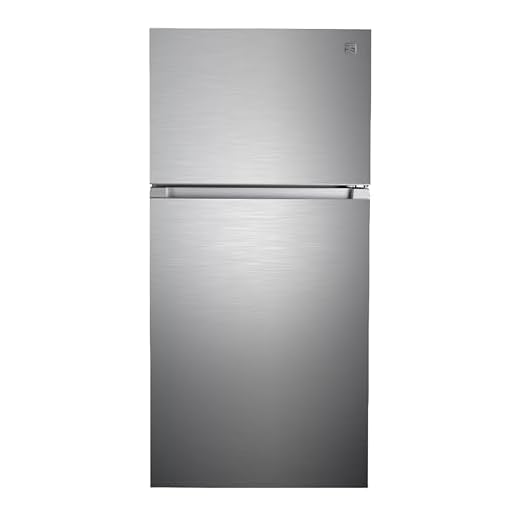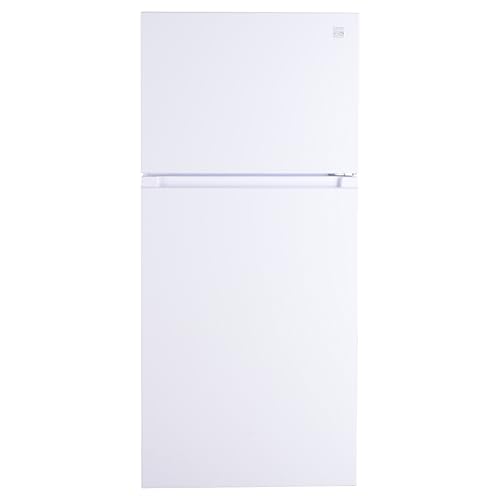



If you have ever wondered how much energy your refrigerator consumes, you are not alone. Refrigerators, being an essential appliance in any household, use a significant amount of electricity. Understanding how many kilowatt-hours (kWh) it takes to run a refrigerator can help you manage your energy consumption and make informed decisions about your energy usage.
When it comes to determining the energy usage of a refrigerator, several factors come into play. The size, age, and model of the refrigerator, as well as the ambient temperature and the frequency of door openings, can all affect its energy consumption. Additionally, energy-saving features, such as automatic defrost and efficient compressors, can greatly impact the overall kWh usage.
On average, a standard-sized refrigerator in the United Kingdom consumes between 100 to 300 kWh per year. However, it is important to note that this is just an estimate, and the actual energy usage may vary depending on the factors mentioned earlier. To get a more accurate understanding of your refrigerator’s energy consumption, you can refer to the product manual or check the energy label provided by the manufacturer.
Monitoring and managing your refrigerator’s energy usage can help you save on electricity bills and reduce your carbon footprint. Simple steps like keeping the refrigerator set at an appropriate temperature, minimizing door openings, and regularly cleaning the coils can all contribute to energy efficiency. By being aware of how many kWh your refrigerator consumes, you can make informed choices and work towards a more sustainable lifestyle.
The Average Refrigerator Energy Consumption
Understanding the energy consumption of your refrigerator is essential for managing your household energy usage. The average refrigerator consumes a certain amount of electricity each day, which can vary based on its size, age, and energy efficiency rating. By having a better understanding of this energy consumption, you can make informed decisions about how to reduce energy waste and lower your electricity bills.
On average, a standard-sized refrigerator in the United Kingdom consumes between 100 and 200 kilowatt-hours (kWh) per year. However, it’s important to note that this value can vary depending on various factors such as the model, temperature settings, and usage patterns. Some larger or older models may consume more energy, while newer and energy-efficient models may consume less.
To estimate the daily energy consumption of your refrigerator, you can divide the annual consumption by 365 days. For example, if your refrigerator consumes 150 kWh per year, the daily consumption would be approximately 0.41 kWh.
To further reduce energy consumption, consider the following tips:
- Ensure that the refrigerator door seals are tight and free from any gaps or cracks.
- Avoid placing hot items directly into the refrigerator. Allow them to cool down first.
- Set the temperature of your refrigerator to the recommended level, usually between 2 to 5 degrees Celsius.
- Regularly defrost your refrigerator to maintain efficient cooling.
- Keep the refrigerator well-ventilated and away from sources of heat, such as ovens or direct sunlight.
By implementing these tips and being mindful of your refrigerator’s energy consumption, you can contribute to a more sustainable and cost-effective household.
Factors Affecting Refrigerator Energy Consumption
The energy consumption of a refrigerator can depend on several factors, including:
1. Size and Type:
The size and type of the refrigerator play a significant role in energy consumption. Larger refrigerators generally consume more energy than smaller ones. Additionally, side-by-side or French door models with double doors tend to use more energy compared to single door refrigerators.
2. Energy Efficiency:
The energy efficiency rating of a refrigerator, indicated by the Energy Star label, is an important factor in determining its energy consumption. Energy-efficient models are designed to consume less power while still providing optimal cooling performance. Choosing a refrigerator with a high energy efficiency rating can result in significant energy savings over time.
3. Temperature Settings:
The temperature settings of a refrigerator can also impact its energy consumption. Setting the temperature too low can cause the refrigerator to work harder to maintain the desired temperature, resulting in increased energy usage. It is recommended to set the refrigerator temperature between 37 to 40 degrees Fahrenheit (3 to 4 degrees Celsius) and the freezer temperature between 0 to 5 degrees Fahrenheit (-18 to -15 degrees Celsius) for optimal efficiency.
4. Location and Ventilation:
The location and ventilation of the refrigerator can influence its energy consumption as well. Placing the refrigerator near heat sources such as ovens, dishwashers, or direct sunlight can cause it to work harder to cool its contents. Additionally, proper ventilation around the refrigerator is essential to allow heat to dissipate efficiently, reducing energy usage.
5. Usage Patterns:
The frequency and manner in which the refrigerator is used can impact its energy consumption. Opening the refrigerator door frequently or leaving it open for extended periods can cause cool air to escape, leading to increased energy usage. Proper usage habits, such as keeping the door closed and minimizing the time it is left open, can help reduce energy consumption.
Considering these factors can help you make informed choices when it comes to selecting and using a refrigerator, ultimately leading to lower energy consumption and reduced electricity costs.
Calculating the Energy Consumption of Your Refrigerator
Understanding the energy consumption of your refrigerator is important for managing your energy usage and reducing your electricity bills. By calculating how many kilowatt-hours (kWh) your refrigerator uses, you can make informed decisions about energy-efficient practices and potentially save money in the long run.
To calculate the energy consumption of your refrigerator, you’ll need to follow these steps:
- Find the refrigerator’s wattage. This information can usually be found on the appliance’s label or in the owner’s manual. The wattage indicates how much power the refrigerator consumes.
- Determine the number of hours your refrigerator runs per day. This can vary depending on usage and temperature settings.
- Calculate the daily energy usage by multiplying the wattage by the number of hours of operation. This will give you the total energy consumed by your refrigerator in watt-hours per day.
- Convert the daily energy usage to kilowatt-hours (kWh) by dividing the watt-hours by 1000. This will provide a more manageable unit for measuring energy consumption.
For example, let’s say your refrigerator has a wattage of 150 watts and runs for an average of 8 hours per day:
| Wattage | Hours of Operation | Daily Energy Usage (Wh) | Daily Energy Usage (kWh) |
|---|---|---|---|
| 150 | 8 | 1200 | 1.2 |
Based on this calculation, your refrigerator consumes approximately 1.2 kWh of electricity per day.
It’s worth noting that this is a basic estimation, and other factors can affect your refrigerator’s energy consumption, such as the age of the appliance, temperature settings, and how often you open the refrigerator door. However, this calculation provides a good starting point for understanding and managing your refrigerator’s energy usage.
Tips for Reducing Your Refrigerator’s Energy Consumption
When it comes to saving energy and reducing electricity costs, your refrigerator can be a major player. Here are some tips to help you make your refrigerator more energy-efficient:
1. Proper Temperature Settings
Set your refrigerator’s temperature to around 37-40°F (3-4°C) and the freezer at 0°F (-18°C). Keeping your fridge colder than necessary can consume more energy.
2. Check the Door Seals
Inspect the seals around the refrigerator door to make sure they are intact and free from any cracks or gaps. A faulty seal can cause cold air to escape and warm air to enter, making your fridge work harder and consume more energy.
3. Maximize Efficiency when Opening the Door
Avoid leaving the refrigerator door open for longer than necessary. When opening the door, quickly retrieve or store items and close the door right away. This will help to maintain the cold temperature inside, reducing the workload on the compressor.
4. Regularly Defrost and Clean
Frost buildup inside the freezer can reduce its efficiency over time. Regularly defrost your freezer to keep it running smoothly. Additionally, clean the coils and remove any dust or debris from the back of the refrigerator to improve airflow and efficiency.
5. Don’t Overload or Underload
Don’t overload your fridge with too many items as it can restrict the flow of cold air and reduce efficiency. On the other hand, an underloaded fridge can cause the cold air to escape more easily when the door is opened. Find a balance and make sure the fridge is neither too empty nor too full.
6. Consider the Fridge Placement
Avoid placing your refrigerator near a heat source such as an oven or direct sunlight. Heat sources can make the compressor work harder, using more energy. Keep your fridge away from direct sources of heat for better energy efficiency.
7. Energy-Efficient Models
When it’s time to replace your refrigerator, consider purchasing an energy-efficient model. Look for units with the ENERGY STAR label, as they are designed to use less energy without compromising performance.
By following these simple tips, you can reduce your refrigerator’s energy consumption and lower your electricity bills while keeping your food fresh and safe.
Energy Efficiency Ratings for Refrigerators
When shopping for a new refrigerator, it’s important to consider its energy efficiency rating. An energy-efficient refrigerator can save you money on your electricity bills and reduce your carbon footprint. In the UK, energy efficiency ratings are given using a scale of A+++ to G, with A+++ being the most efficient and G being the least efficient.
How Energy Efficiency Ratings are Determined
The energy efficiency rating of a refrigerator is determined by calculating its annual energy consumption. This is typically measured in kilowatt-hours (kWh). The rating is based on a standard test conducted in controlled conditions, which simulates the average usage of a refrigerator over a year.
During the test, the refrigerator is connected to a power meter that measures the amount of electricity it consumes. This measurement is then used to calculate the annual energy consumption. The higher the energy consumption, the lower the energy efficiency rating.
Benefits of an Energy-Efficient Refrigerator
Choosing an energy-efficient refrigerator has several benefits. Firstly, it can save you money on your electricity bills. An energy-efficient appliance typically consumes less electricity, which means lower energy costs in the long run. Additionally, by reducing your energy consumption, you also reduce your carbon footprint and contribute to a greener environment.
Energy-efficient refrigerators also often come with other eco-friendly features, such as improved insulation and advanced temperature control settings. These features help to keep your food fresh for longer, reducing food waste and saving you money.
When shopping for a new refrigerator, be sure to look for the energy efficiency rating on the appliance. By choosing a refrigerator with a higher energy efficiency rating, you can make a positive impact on both your wallet and the environment.
FAQ
How much electricity does a refrigerator use in a day?
A refrigerator typically uses around 1 to 2 kilowatt-hours (kWh) of electricity in a day.
What factors can affect the energy consumption of a refrigerator?
Several factors can affect the energy consumption of a refrigerator, including the size and age of the refrigerator, the temperature settings, the frequency of door openings, the insulation quality, and the location of the refrigerator.










